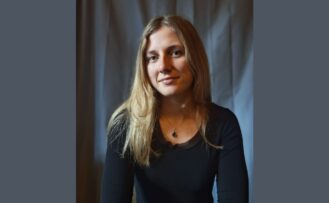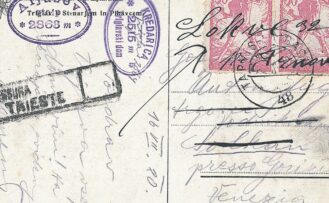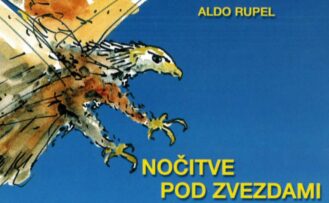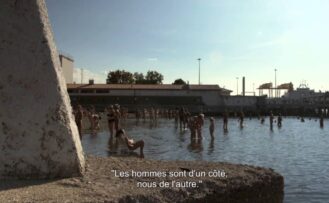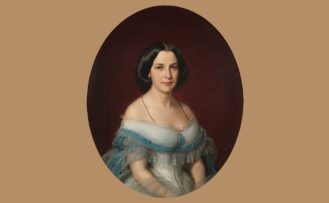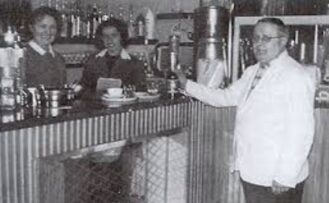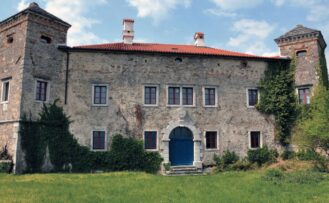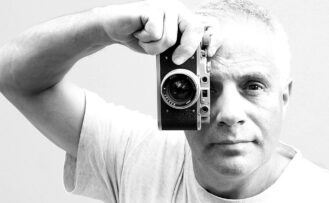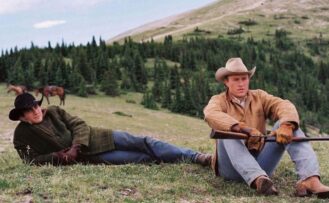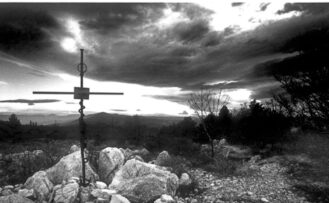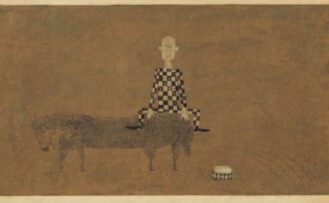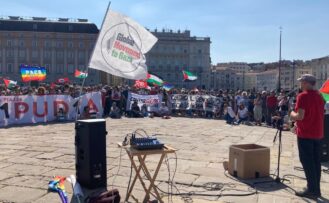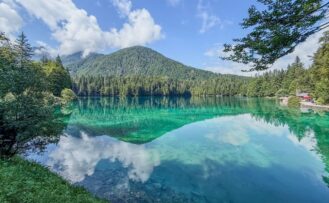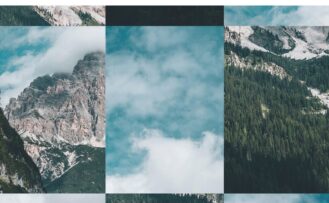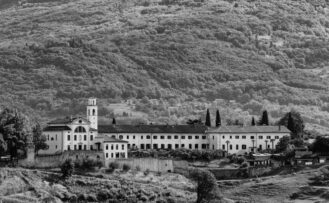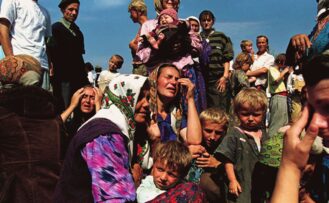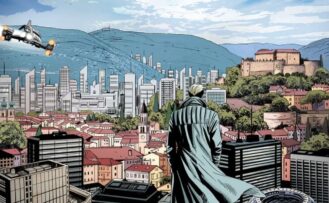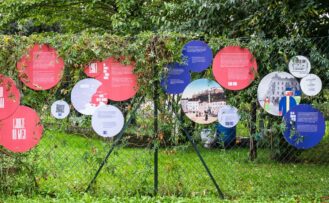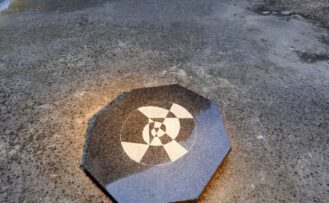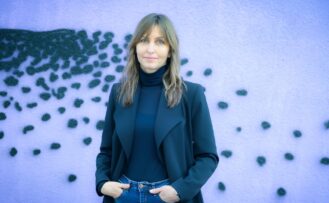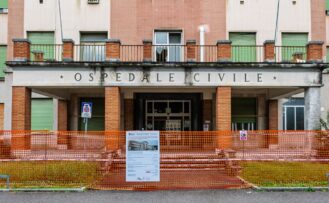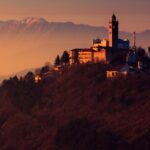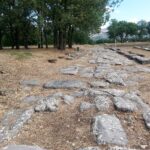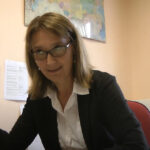Rivista – Revija št. 121
Articoli dell’edizione 121 – Ottobre 2025THE VIEW BELONGS TO THE BRAVE
We live in a time when courage is measured differently than it used to be. In the mountains, we test it with every step uphill, and in life with the decision not to look away.
KLEMENT OF THE SOUTH AND HIS FALL INTO ETERNITY
Alpinist and philosopher Klement Jug (1898–1924) was born in Solkan and belongs to a generation that experienced the First World War and the changes that followed it in its youth, two periods that operated with completely different dynamics.
NIGHT NEAR GORICE
Of the many nocturnal movements, let me describe to you a shorter but more intense one. I will begin unusually with a question: do you know what fear is?
PEDOĆIN
The borders in Europe have disappeared. They are gone. There is only one more border – in Trieste. The last border. The border that won't go away.
“THE BEARER OF THIS EXTRAORDINARY INFLUENCE ON VARIOUS CIRCLES OF HUMAN SOCIETY IN GORIZA AND PRIMORJA”
If we focus more closely on historical works from both older and modern periods, we can quickly notice that women as actors appear in them very rarely, and their role is either insufficiently considered or even omitted.
”VIENNA CAFES” AND CAFÉ BRATUŽ
Coffee shops have always played an important role in Gorizia, ever since the time of the Austro-Hungarian Empire.
LOZE CASTLE
Southwest of the town of Vipava in the upper Vipava Valley, on terrain that rises towards the Karst, at the transition between the green valley and the red Karst soil are the picturesque villages of Goče, Slap, and Lože.
MAKING KNOWN, COMMUNICATING
We often hear debate, in these very turbulent and anguished times, about what the function of communication can be.
A GURIZE NO SI STUDE L’IDENTITÂT FURLANE
A rivin segnâi confuartants dal Friûl orientâl. Al sarà ancje pai efiets colaterâi di GO2025, ma la atenzion che e je daûr a gjoldi cheste part dal Friûl e à lescjât une schirie di intervents e di avigniments che si scuen marcâju e daûr une
HETEROTOPIA AT HIGH ALTITUDE
There are times and situations in which to deal with a certain topic, to write to it, you have to move on the bounce, on the side, in basketball you would say "table".
RADIO JUDRIO. LIVING INSIDE THE BORDER. A COUPLE PROJECT
Fifteen kilometers from the first supermarket and ten from the first bar, Oborza has a total of twenty-two inhabitants: less than a city apartment building.
A(R)MATE MOUNTAINS
The peaks of the Julian Alps and the splendid scenery of the Soča Valley and the Triglav Park have always been places of the soul for those who love to walk the mountain paths in search of views, peace and tranquility.
POETICHE BESEDE – MILJANA CUNTA
Non è piu` inverno, ancora non è primavera. Nella terra di nessuno tra l’uno e l’altro periodo la carovana carnevalesca si apre il cammino.
THE GLOBAL SUMUD FLOTILLA AND THE GLOBAL MOVEMENT TO GAZA: SIDE CONSIDERATIONS
This text is a reinterpretation of the speech delivered at the opening of the demonstration held on 6 September at the Audace pier in Trieste, in support of the mission of the Global Sumud Flotilla to Gaza.
IN THE MOUNTAINS WE ARE ALWAYS GUESTS
I leave once again by train. It is a Sunday in August and the central station of Gorizia is crowded: among the travelers, several have their bikes with them, like me.
THE JULIAN ALPS AND THE IDEA OF EUROPE
March 1953, Stalin's death ended the years of tension between the Soviet Union and the Federal Republic of Yugoslavia that had followed one another since Tito's decision, in 1948, to break away from the communist bloc of Eastern Europe.
DECALOGUE FOR SENIOR HIKERS
Covid marked a watershed, a caesura, a boundary between two historical eras, with "before" and "after".
GAP THE MIND. SERMON ON THE MOUNTAIN 2.0
This article does not talk about mountains.
It speaks of the space that surrounds it, without which it would not be such for us. "Mind the gap" is the warning written near the subway platforms in English-speaking cities.
THE PATH OF THE GORIZIA MOUNTAINS
Among the many "paths" available, there is also that of the "Gorizia mountains".
It is a fascinating circular route that can be started from any point, for convenience here you choose the square of the Town Hall of Gorizia.
SREBRENICA GENOCIDE – THIRTY YEARS LATER
The Croatian writer Miroslav Krleža, who died in 1981 in Zagreb, wrote in one of his works, that when the lights go out in a Balkan tavern, the guests hold the knife, as if to say that the Balkan peoples have boiling blood.
GORIZIA IN COMICS
If I think back to my childhood, when I read Mickey Mouse in Italian, thanks to which I learned the language — together of course with the Italian transpositions of the legendary Japanese cartoons of the eighties
WHO REALLY WANTS CANCEL CULTURE?
Francesco Fain in his article of September 4 in "Il Piccolo" recalls the proposal of Dario Stasi, and of the newspaper he directed, reborn this year, to use the Bombi gallery to create a museum of the 20th century.
POINT DE VUE BY ANNIBEL CUNOLDI ATTEMS, VENO PILON, EVGEN BAVČAR AND MARKO POGAČNIK
Vipavski Kriz (the ancient Holy Cross), in the municipality of Ajdovšcina, is defined in tourist language as "a small, picturesque walled village, today one of the most beautiful cultural and historical monuments in Slovenia",
POETIC CONVERSATIONS IN ART
"Dear friend, allow me to introduce you to my atelier [
FÂ O DISFÂ, SI O NO AL SDRUMÂ IL VECJO OSPEDÂL DI VIE VITTORIO VENETO
Al è un proverbi antîc che al continue a jessi confermât e al reste fuart ancjemò vuê.
La cuistion, dut câs, e je cemût che si dopre, parcè che “no fâ” al vûl dî ancje distruzi e dismenteâ, come che “fâ” al vûl dî ancje costruî

